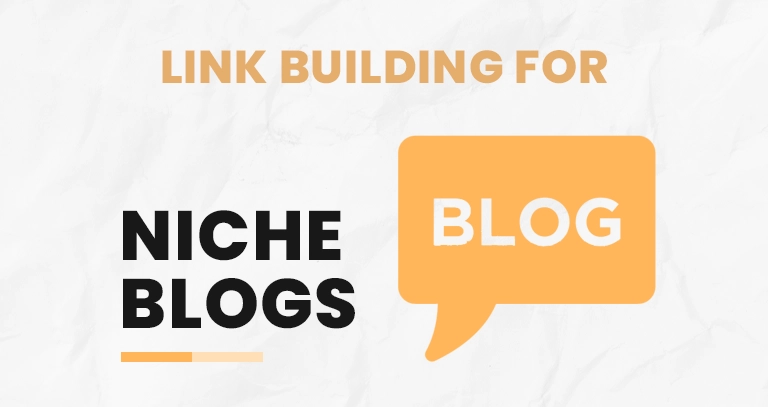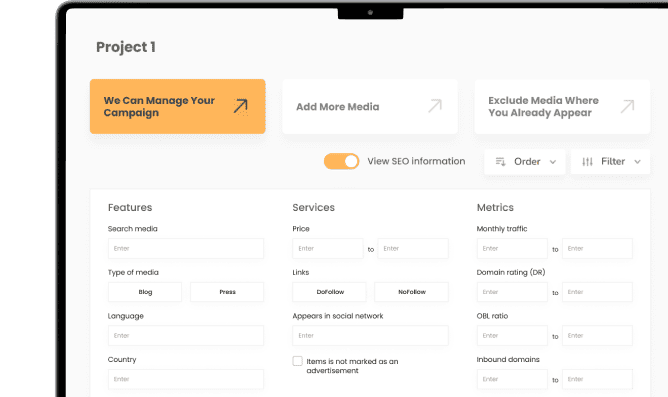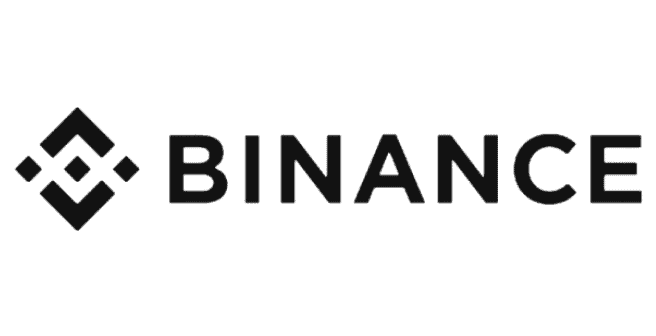
The quality of links can make the difference between success and anonymity in Google searches. Through strategies like guest blogging, fixing broken links, and engaging in online communities, bloggers can increase their visibility and solidify their authority. This article reveals how to optimize these tactics to reach and captivate a specific audience, ensuring that each link is a firm step toward digital recognition.
The power of link building in specialized blogs
The importance of quality links
Quality links are crucial for improving ranking in SERPs and solidifying a website’s authority within its niche. In specialized blogs, having these links can make all the difference when trying to reach specific audiences and improve search engine visibility. Additionally, they increase referral traffic by reaching readers from other sites, raising the possibility of attracting new visitors interested in your content. The quality of links is measured by factors such as the linking domain’s authority, thematic relevance, and the context in which the link is placed.
Quality content: the foundation of success
Creating relevant and valuable content
Developing relevant and valuable content is essential for any effective link building strategy. It’s important that the content resonates with the niche audience, addressing current and specific interest topics. To achieve this, it’s advisable to conduct thorough research on trends and audience preferences, using tools like Google Trends or BuzzSumo.
There are several content formats that can generate more links, such as in-depth analysis articles, infographics, detailed guides, and case studies. These formats are not only informative but also highly shareable, increasing the likelihood of being linked by other websites. When creating this type of content, it’s crucial to maintain a high standard of quality and originality to stand out in a sea of digital information.
Guest blogging: expanding horizons
How to choose the right blogs for guest blogging
Guest blogging is an effective tactic to gain quality links and increase visibility and recognition. It’s crucial to select blogs with high domain authority, niche relevance, and quality content. To identify the right blogs, you can use tools like Moz or Ahrefs to assess the domain’s authority and organic traffic. Additionally, it’s important to manually review the content and audience engagement to ensure that the blog is a good fit for your guest blogging strategy. To make the most of guest blogging and ensure your efforts yield results, it’s crucial to choose the right blogs. This is where Growwer becomes an essential tool. With over 30,000 high-quality blogs and media outlets available, Growwer allows you to find the most relevant and authoritative platforms for your guest blogging strategy. Whether you’re looking for sponsored or unmarked links, you can filter the media by niche and authority to ensure every collaboration expands your horizons and strengthens your link profile effectively.
What are the advantages of guest blogging in link building?
Guest blogging offers several advantages beyond obtaining links. This strategy improves blog visibility by exposing it to audiences that might otherwise be difficult to reach. Additionally, by collaborating with reputable blogs, the author’s perception as an authority in their niche is strengthened, which can lead to more collaboration opportunities in the future. Links obtained through guest blogging are usually of high quality, positively contributing to the blog’s link profile and significantly improving search engine rankings.
Leveraging broken links
Identifying and fixing broken links
The broken link strategy involves finding non-functional links on other websites and proposing your own content as a replacement. This approach benefits both the website owner with the broken link, as it improves the user experience, and you, by gaining a valuable link. To implement this strategy effectively, it’s important to create content that is equal to or better than the original content the broken link was pointing to.
To identify broken links, you can use SEO tools like Ahrefs or SEMrush. Once located, contact the site administrator to inform them about the broken link and suggest your content as an ideal replacement. This tactic not only improves your link profile but also strengthens relationships with other content creators, leading to future collaborations and networking opportunities within your niche.
Active participation in online communities
Benefits of engaging in specialized forums and communities
Actively participating in specialized forums and online communities is an effective way to generate inbound links and establish yourself as a reliable source of knowledge. These interactions allow other members to organically discover and share your blog. Platforms like Reddit, Quora, and LinkedIn are ideal for engaging in discussions and sharing knowledge. By contributing meaningfully to these platforms, you can create natural opportunities to link to your content when it is relevant and valuable to the discussion.
Digital PR: cultivating connections
Strategies for building relationships with influencers
Digital PR is an effective tool for generating mentions and authoritative links. Connecting with journalists, bloggers, and influencers in your industry is crucial for extending the reach of your content. To achieve this, it’s important to offer relevant and useful content that resonates with these influencers’ audiences. An effective strategy is to create exclusive or personalized content for each influencer, increasing the chances of them sharing and linking to it.
One way to establish these connections is through social media, participating in industry events, or collaborating on joint projects. By maintaining constant communication and providing value, you can build strong relationships that benefit both your blog and the influencer’s audience. Tools like BuzzStream or Pitchbox can help you manage and track these relationships efficiently.
Directories and resources: expanding visibility
Using directories and resource lists
Including your blog in relevant directories and industry resource lists can be an effective way to gain additional links. While these links may not always carry the same weight as natural ones, they contribute to the overall visibility of the blog. It’s essential to carefully select directories, prioritizing those that are niche-specific and have a good SEO reputation.
To evaluate the effectiveness of these links, it’s important to consider the directory’s authority and relevance to your niche. By including your blog in quality directories, you’re not only gaining links but also accessing a potentially interested audience. Additionally, these directories can provide direct traffic to your blog, especially if they are used as reference sources in your industry.
Diversification: the key to a robust link profile
Building a varied link profile
Diversifying link sources is crucial for building a robust and balanced profile. A varied link profile not only improves SEO but also protects your blog from potential penalties by search engines. Combining links from blogs, media outlets, and social networks is an effective strategy to achieve this diversification. It’s important to strike a balance between “dofollow” and “nofollow” links, as well as links from different types of websites.
By seeking opportunities on a variety of websites, you can ensure that your link profile is balanced and resilient to changes in search engine algorithms. This strategy also facilitates reaching different segments of your potential audience. Use link analysis tools to monitor the diversity of your profile and adjust your strategy as needed.
Quality over quantity: evaluating links
Analyzing the quality of inbound links
Not all links have the same value, so it’s essential to conduct a thorough analysis of the quality of inbound links. Tools like Ahrefs and SEMrush are useful for evaluating the authority and relevance of the sites linking to your blog. Key factors to consider include the domain’s authority, thematic relevance, the linking site’s organic traffic, and the link’s position within the content.
Low-quality links can harm your blog’s reputation, so it’s crucial to prioritize those from high-authority and relevant websites. By evaluating the quality of your links, you can ensure that your link building strategy aligns with your long-term SEO goals. Consider conducting regular audits of your link profile and, if necessary, disavow low-quality links that may be hurting your ranking.
SEO tools: allies in link building
Using tools to optimize your strategy
SEO tools like Ahrefs, SEMrush, and BuzzSumo are key allies in optimizing link building strategies. These tools allow for detailed backlink analysis, identifying link opportunities, and assessing the domain authority of specific sites. They also offer functionalities to monitor your brand mentions online, helping you discover untapped link opportunities.
By properly using these tools, you can optimize your overall link building strategy, ensuring that you’re making the most of every link opportunity. They also provide valuable insights to fine-tune your actions and continuously improve your link profile. It’s important to become familiar with the various features of each tool and use them complementarily to gain a comprehensive view of your link building strategy.
Continuous monitoring: adjusting the course
Evaluating and adjusting link building strategies
The continuous monitoring of your link profile is essential for the long-term success of any link building strategy. Regularly evaluating the effectiveness of the strategies implemented allows you to adjust and optimize your actions, maximizing their impact on your target niche. Set a regular review schedule, such as monthly or quarterly, to analyze the performance of your links and their impact on your blog’s ranking.
Methods like tracking key metrics, reviewing link reports, and analyzing changes in web traffic are essential to maintaining the relevance and effectiveness of your strategy. By making data-driven adjustments, you can ensure that your blog remains competitive in search engine rankings. Use web analysis tools like Google Analytics and Google Search Console in conjunction with the SEO tools mentioned earlier to gain a comprehensive view of your link building strategy’s impact on your blog’s overall performance.







